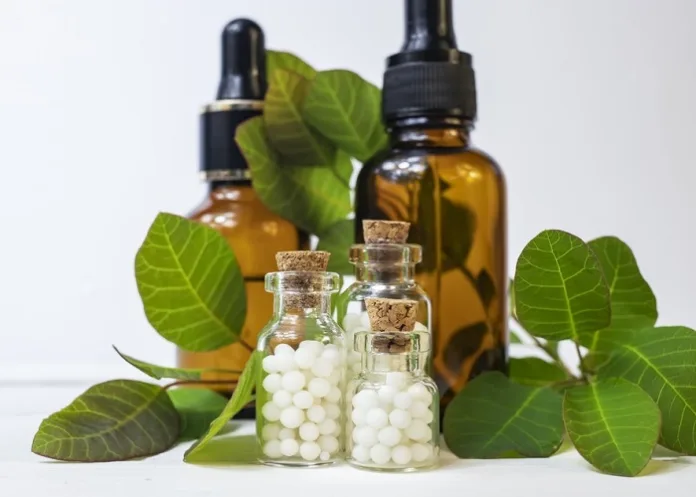The WHO estimates that 60% to 80% of South Africans use herbal products to treat health problems, the statistic being attributed to the diversity of the country’s population and the differing cultural practices.
With about 30 000 plant species, the region is rich in indigenous medicinal plants, upon which a significant number of people still depend for their primary healthcare needs, especially those with chronic conditions, writes Dr Tebogo Tsele-Tebakang in the Mail & Guardian.
Many people resort to these out of desperation; for alternative treatment; to reduce the side effects of conventional medicine or because of unsatisfactory experiences with the healthcare system.
Others use herbal products because they regard them as safe because they are “natural” and have been recommended by family or the community.
Herbal products are affordable, according to people who use them, and easily available. In fact, there are herbal markets on almost every street corner in the cities, towns and local communities.
However, these are not regulated and often the products are not manufactured and stored according to proper standards. Most are packaged in plastic bottles without proper labels.
And contrary to the belief that herbal medicines are safe, the truth is, some are highly toxic and can interact with prescribed medicines if taken concurrently.
People often co-administer herbal products and prescribed medicines without any knowledge of how the two will interact.
The crucial factor is that herbal medicines often do not contain just a single ingredient – they have other ingredients with unknown adverse effects.
Combining herbal and prescribed medicines can range from mild allergic reactions and abdominal upset to cerebral haemorrhage, liver damage and even death.
When taken concurrently with them, herbal products can negatively affect the antagonistic pharmacological effects and absorption, distribution, metabolism and excretion of prescribed medicine.
For instance, clinical data has shown that the popular herbal antidepressant Hypericum perforatum (St John’s Wort) interacts with numerous drugs such as immunosuppressants, contraceptives and cardiovascular, antiretroviral and cancer drugs, to mention a few.
Red, or Korean, ginseng (Panax ginseng) causes insomnia, tremors and headaches when co-administered with phenelzine, which is used to treat depression. Ginkgo (Ginkgo biloba) can induce seizures when combined with phenytoin or valproic acid, and excessive bleeding when combined with blood-thinner warfarin.
Consumers of herbal products are at risk due to the lack of knowledge about herb-drug interaction, and education and awareness need to start in consultation rooms.
Healthcare providers need to ask patients whether they are using herbal medicine because patients frequently use them without medical supervision. Patients also need reliable information about herb-drug interaction so they can make informed decisions about their health.
Research has shown there is minimal inquiry about herbal medicine use in consultation rooms. This is because, within the South African clinical context, the standardised form for patient record-keeping does not specifically reference the use of herbal medicine.
The Department of Health and other stakeholders need to make sure herb-drug interaction is communicated in every consultation room so that healthcare providers can warn patients of any ill effects.
Communication about herb-drug interaction would also assist in the reporting of adverse reactions to the South African Health Product Regulatory Authority’s adverse drug reaction monitoring system. The lack of communication about the issue leads to poor documentation and, ultimately, undermines the effectiveness of the system.
There is a dearth of reliable data on herb-drug interaction in South Africa, due to poor documentation and reporting.
Effective communication and educational intervention could prevent patients from suffering adverse reactions if they’re considering combing the two.
Dr Tebogo Tsele-Tebakang is the head of the Department of Complementary Medicine at the University of Johannesburg’s Faculty of Health Sciences.
Mail & Guardian article – Doctors need to discuss herb-drug interaction with patients (Open access)
See more from MedicalBrief archives:
Herbal weight-loss supplement and green tea linked to severe liver damage
WHO issues rules for testing African herbal remedies against COVID-19
NHS ends funding of homeopathic and herbal medicines
Potential for herbal medications to damage the liver
Turmeric supplements linked to jaundice, liver damage
Regulating indigenous medicine may be constitutionally difficult
Dangers of alternative medicine in advanced breast cancer

